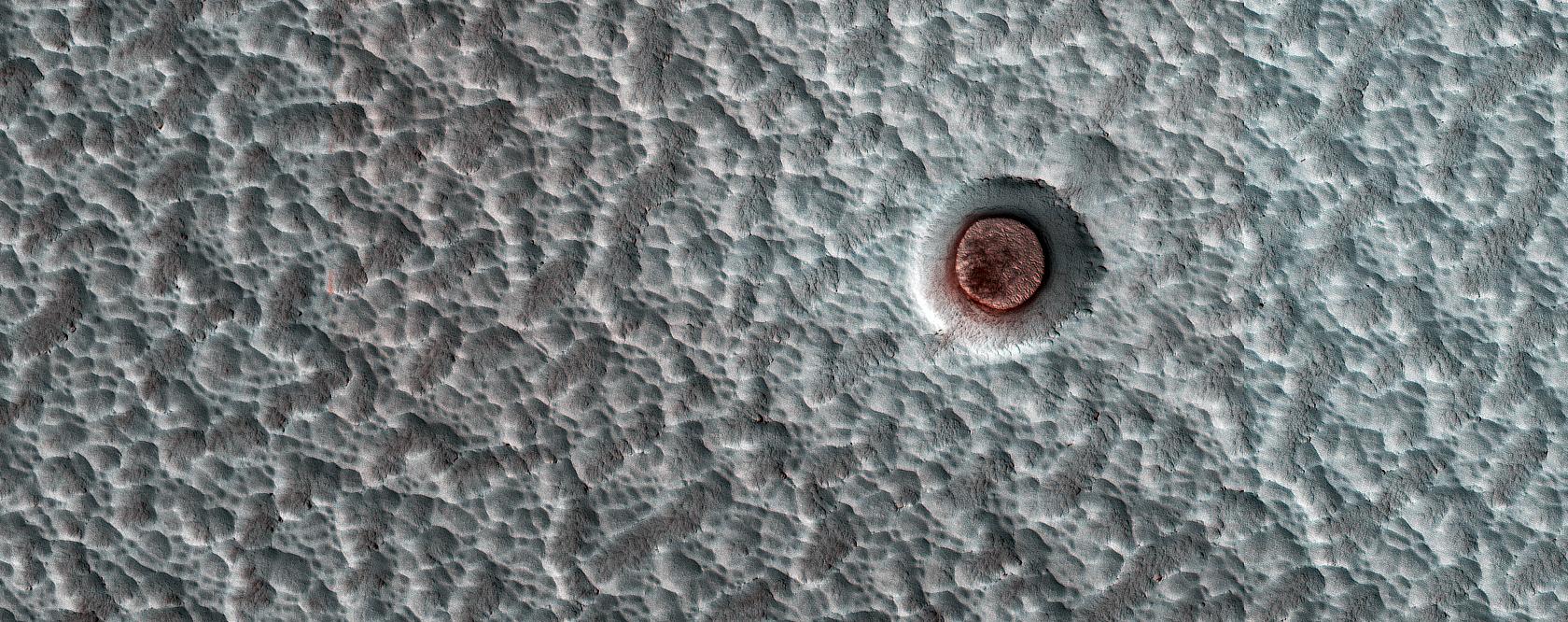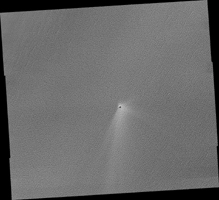
|
North Polar Changes over 6 Mars Years
- Click the image above for a larger view
- Full-Res JPEG (1680 x 666) (352.6 kB)
- Full-Res TIFF (1680 x 666) (3.4 MB)
Caption:

Map Projected Browse Image
Click on image for larger version
MRO has been observing Mars for 6 Mars Years (MY), each of which lasts for 687 Earth days. Shown here is an impact crater on the north polar ice cap, which contains an icy deposit on the crater floor.
These inter-crater ice deposits shrink and expand or change shape or surface texture from year to year. In this animation , we can see the appearance of this crater fill in MY 29 (2/2008), 30 (8/2010), 31 (7/2012), 33 (2/2016), 34 (1/2018), and 35 (12/2019).
The map is projected here at a scale of 25 centimeters (9.8 inches) per pixel. (The original image scale is 31.7 centimeters [12.5 inches] per pixel [with 1 x 1 binning] to 63.4 centimeters [25.0 inches] per pixel [with 2 x 2 binning].) North is up.
Background Info:
The University of Arizona, in Tucson, operates HiRISE, which was built by Ball Aerospace & Technologies Corp., in Boulder, Colorado. NASA's Jet Propulsion Laboratory, a division of Caltech in Pasadena, California, manages the Mars Reconnaissance Orbiter Project for NASA's Science Mission Directorate, Washington.
Cataloging Keywords:
| Name | Value | Additional Values |
|---|---|---|
| Target | Mars | |
| System | ||
| Target Type | Planet | |
| Mission | Mars Reconnaissance Orbiter (MRO) | |
| Instrument Host | Mars Reconnaissance Orbiter | |
| Host Type | Orbiter | |
| Instrument | High Resolution Imaging Science Experiment (HiRISE) | |
| Detector | ||
| Extra Keywords | Color, Crater, Impact, Map | |
| Acquisition Date | ||
| Release Date | 2020-01-16 | |
| Date in Caption | ||
| Image Credit | NASA/JPL-Caltech/University of Arizona | |
| Source | photojournal.jpl.nasa.gov/catalog/PIA23671 | |
| Identifier | PIA23671 | |
